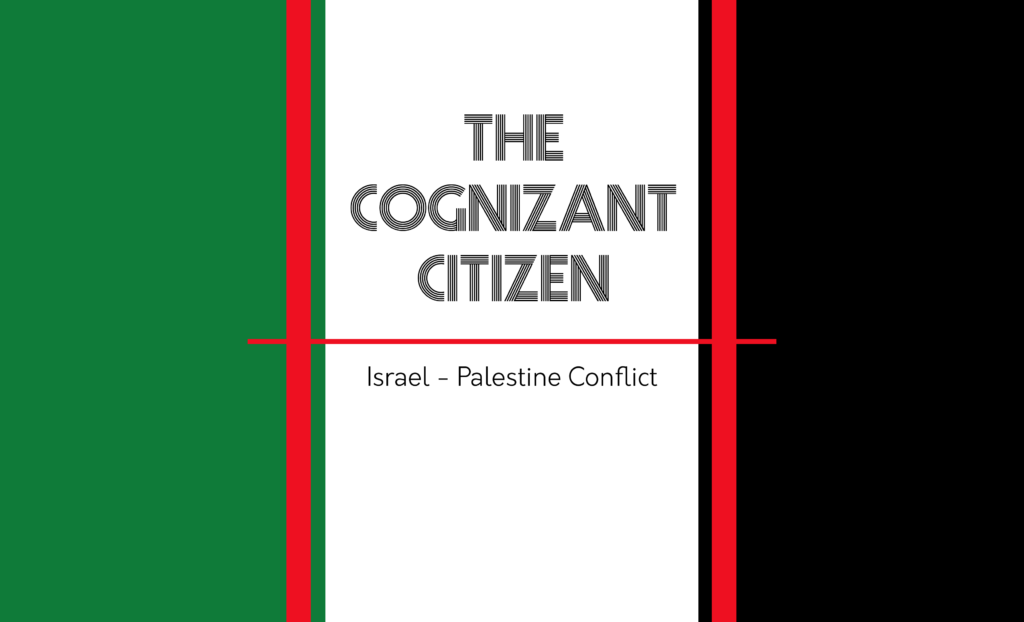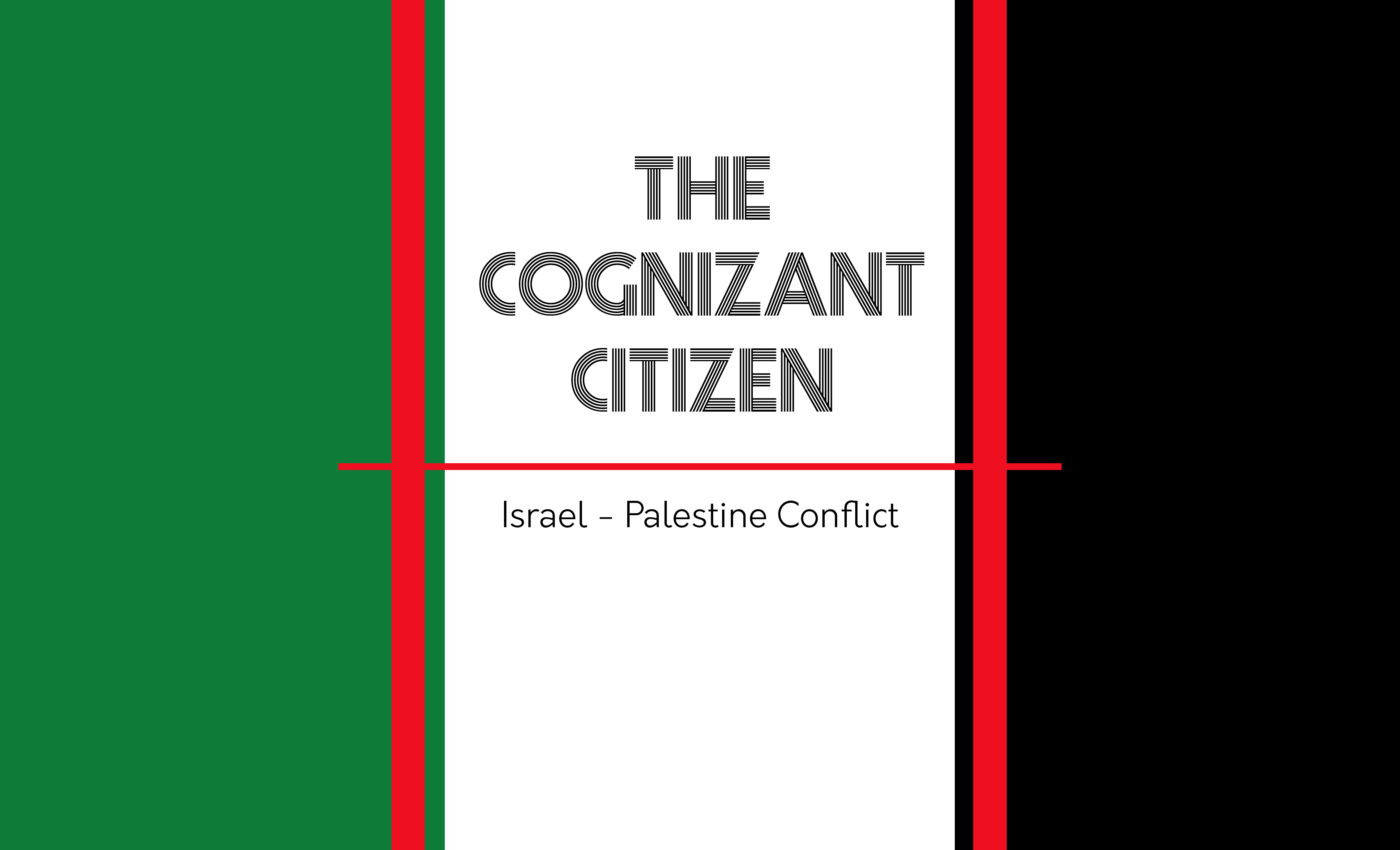
Disclaimer: This situation is rapidly changing, and we at MTTN are trying our level best to keep the article up to date. While there might be temporary inconsistencies, we ensure that we will look into them. We express regret for the same.
The pandemic has been engulfing the world for more than a year now, yet the tornado of global conflicts is far from being composed. With the predicament between Israel and Palestine indicating a potential war, all eyes are glued with their fingers crossed to witness an end to current bloodshed between the two countries. The Middle East crisis, for long, has been sitting as one of the dire concerns on the UN conference table; however, the present death dealings between Israel and Palestine have not occurred since the year 2014.
The Birth of the State of Israel
The British mandate of Palestine was voted to partition into a Jewish state and Arab state by the United Nations (UN) in November 1947. It took no time for both the Jewish and Arabs to lock horns, and British troops started withdrawing. With the assistance of intra-Arab rivalries, the Zionist militias gained the upper hand over the Palestinians. The rejection of UNO’s proposal to divide Palestine led to the birth of the state of Israel on the lines laid down by the UN Commission on August 1st, 1948. This was acknowledged by the two superpowers at that time—the United States of America and the Soviet Union.
History of Israel-Palestine Conflict
The partition of Palestine and the creation of Israel became the bone of contention between the Arabs and the Jews. Israeli people wanted to claim their homeland in Palestine, which was utterly inadmissible to the Arabs as they feared the sanctity of Islam would be damaged. The first Arab-Israeli War took place in the year 1948 after the declaration of the newly born state of Israel. The country was soon invaded by the armies of five Arab states—Egypt, Iraq, Lebanon, Syria and (then Transjordan) Jordan. Considered to be one of Israel’s costliest wars, Israel usurped 60% of the Arab state. This eventually led to 700,000 Palestinian Arabs fleeing from their homes in a part that became Israel and were termed ‘Palestinian Refugees.’
In 1967, a ‘Six Days War’ broke out between Israel and Syria, Jordan, and Egypt against the latter’s ‘Crush Israel’ campaign. The Israeli army, destroying two-third of Egyptian aircraft, captured Sinai, Gaza from Egypt and Golan Heights from Syria. The territories captured by Israel were to be returned as per UN order; however, Israel’s dismissal of the order resulted in these captured territories becoming a buffer zone between the Arab states and Israel.
Israel’s triumph in the 1967 war bestowed the Jews with many territories under their administration. The successor of Egyptian President Nasser, Anwar Sadat, realised that Egypt had become an economically troubled state. Despite that, he chose to attack Israel again. Consequently, the Yom Kippur War broke out between Israel and the Arab states, which ended in another Israel conquest. In 1978, Israel and Egypt signed the US-brokered Camp David Accord. This peace treaty made Israel return Sinai to Egypt. However, it was a controversial treaty in the Arab world due to the assassination of President Anwar Sadat of Egypt.
In 1993, after a series of wars between the two nations, the OSLO Peace Accord took place between Israel and Palestine Liberation Organisation (PLO), in which both officially recognised each other. The Palestinians were given limited self-rule on the West Bank (Jericho) and part of the Gaza strip. Finally, Israeli troops were withdrawn from the areas captured by Israel since the 1967 War.
On July 8th, 2014, Gaza War, also known as Operation Protective Edge, was launched by Israel in Hamas ruled Gaza strip. According to Israel, the offensive was launched on Gaza to bring an end to rocket fire and eliminate the danger of militants tunnelling under the border launching attacks. Palestinian militants, on the other hand, had fired more than 6,600 rockets or mortars at Israel. The UN reportedly had said that both Palestine and Israel might have committed war crimes during the 2014 Israel-Gaza conflict or the summer war, which profoundly shook both Israelis and Palestinians.
The Escalation of Political Tension Between Israel and Palestine in 2021
The old city of Jerusalem had been witnessing constant clashes between the Israeli Police and the Palestinian protestors for a month. The Israelis have prevented specific Palestinian gatherings at the Damascus Gate Plaza at the start of Ramadan, the Muslim holy month. Tensions over a proposal to evacuate thousands of Palestinians from an east Jerusalem neighbourhood remained high even after the restrictions were lifted. On May 7th, clashes occurred in and around the third holiest site in Islam—Al-Aqsa Mosque. Following this, the Palestinians reportedly drove out Jewish families settled in Sheikh Jarrah. The plateau on which Al-Aqsa mosque sits is considered a Noble Sanctuary by Muslims, and as for Jews, the walled plateau, known as the Temple Mount, is the holiest spot.
In recent years, escorted groups of religious and nationalist Jews have been visiting the compound in more significant numbers and holding prayers in violation of Israeli, Jordanian, and Muslim religious authorities’ laws enacted after 1967. The repeated visits and attempted prayers by Jews are seen as a provocation by Palestinians, and it often results in scuffles or more extreme barbarity. Reacting to the clash that took place at Al-Aqsa, Israel, on May 9th, announced a deferment on a hearing on Sheikh Jarrah’s land ownership conflict. Hamas, the Palestinian terrorist organisation that governs Gaza, called for a new ‘intifada’, or rebellion, similar to the one that erupted in 2000 when an Israeli politician visited Al-Aqsa.
The situation exacerbated on May 12th when Israel refused to remove its police forces from the holy hilltop. The militants in Gaza, run by the Palestinian Islamist movement Hamas, launched 130 rockets into Israel when their ultimatum went unheeded. Responding to the firing of more than 1,000 rockets by Hamas since May 10th, Israel launched airstrikes on May 12th, killing several Hamas top commanders and leaders. The Israel Defense Forces (IDF) claimed to have launched the largest strikes on Gaza since the year 2014 as they bombarded Gaza with more than 1,500 rockets. With the airstrike tearing down buildings in Gaza and Israel blaring with sirens in a harrowing state of emergency adjacent to skies on fire due to Israeli cities that went up in smoke, both the countries are on the threshold of a full-scale war. As per Gaza officials, 212 Palestinians, including 61 children and 36 women, have lost their lives. On the other hand, Israel has claimed 10 Israelis, including two children, have succumbed to their injuries. These casualties on both sides have been reported as of 18th May.
Why is Jerusalem Important to Both the Countries?
Jerusalem was split into two halves, one in the west and the other in the east. However, no official peace treaty was signed, and each side continued to blame the other for the tension—resulting in further wars in the area. The fate of the region, which has profound religious and national importance for both Israel and Palestine, is at the centre of the decades-long confrontation between the two countries. Israel effectively conquered East Jerusalem in 1980 and declared the entire city to be its capital, even though many other countries do not recognise this. However, the eastern half of Jerusalem is claimed by Palestinians as the capital of a future Palestinian state. Home to significant religious sites which are sacred to Jews, Christians, and Muslims, Jerusalem, for 100 years, has been the site of deadly clashes between Arabs and Jews, and it continues to be one of the most hotly disputed cities in the world to this day.
The Old City of Jerusalem and its walls have been designated as a World Heritage Site by the United Nations Educational, Scientific, and Cultural Organization (UNESCO). The Temple Mount, known in Hebrew as Har Habayit, is the holiest location for Jews since it was the location of two ancient temples: the first, according to the Bible, was erected by King Solomon and subsequently destroyed by the Babylonians; and the second, which existed for about 600 years before being blighted by the Roman Empire in the first century. Therefore, Jews all across the globe pray facing Jerusalem. On the other hand, Muslims believe that Prophet Muhammad travelled to Al-Aqsa from Mecca during his night journey and prayed with the souls of all the prophets before ascending to heaven.
On May 10th, Israelis commemorated Jerusalem Day, a national holiday commemorating the annexation. Thousands of Israelis, primarily religious nationalists, have marched through the Old City in recent years, including the heavily populated Muslim Quarter, in a show regarded by many Palestinians as offensive. There is a precarious power share in place as Israeli officials control who has access to the area while the Muslims hold religious authority inside. Jews can enter; however, they are not allowed to pray; therefore, they use the Western Wall. Thus, Jerusalem—a land of various political and religious disagreements between the Jews and the Palestinians, is the apple of the eye of both the rival states.
International Reaction to the Recent Conflict
Following intense hostilities between the rivals, calls for urgent de-escalation of the ongoing conflict between Israel and Palestine became louder on May 12th. However, the wrangle has already begun to divide the world as countries pick sides due to their international relations and political preferences. Nonetheless, the Secretary-General of United Nations, António Guterres, and other UN officials have called for an immediate ceasefire between the two states to avoid the irrefragable vandalism and demise of innocent civilians on both sides. India expressed its deep concerns for the current state of affairs and called on both sides to avoid changing the status quo. The US President, Joe Biden, reassured Israeli leaders of US support while urging them to stop the war. Other countries like the United Kingdom, Japan, and Russia appealed for peace talks between the “almost war-torn” states. Pakistan, Saudi Arabia, and Turkey stood in defence of Palestine and strongly condemned Israel’s actions.
Another Middle East Crisis in the middle of a lethal pandemic that has claimed many innocent lives in a year is the last thing that the world requires at this stage. The current atmosphere in Israel and Palestine is being painted with different religious and political theories paving the way for questions to both the country leaders. But unfortunately, with the bombardment of Israeli cities and the Gaza strip, innocent lives are being put to sacrifice in the process of fostering each side’s political agenda. Therefore, one can only hope for a quick peace settlement marking an end to the present situation, thereby saving the world from another war.
Written by Aarushi Verma for MTTN
Edited by Aakanksha Mantri for MTTN
Featured Image by Vanshika Chanani for MTTN

Leave a Reply
You must be logged in to post a comment.